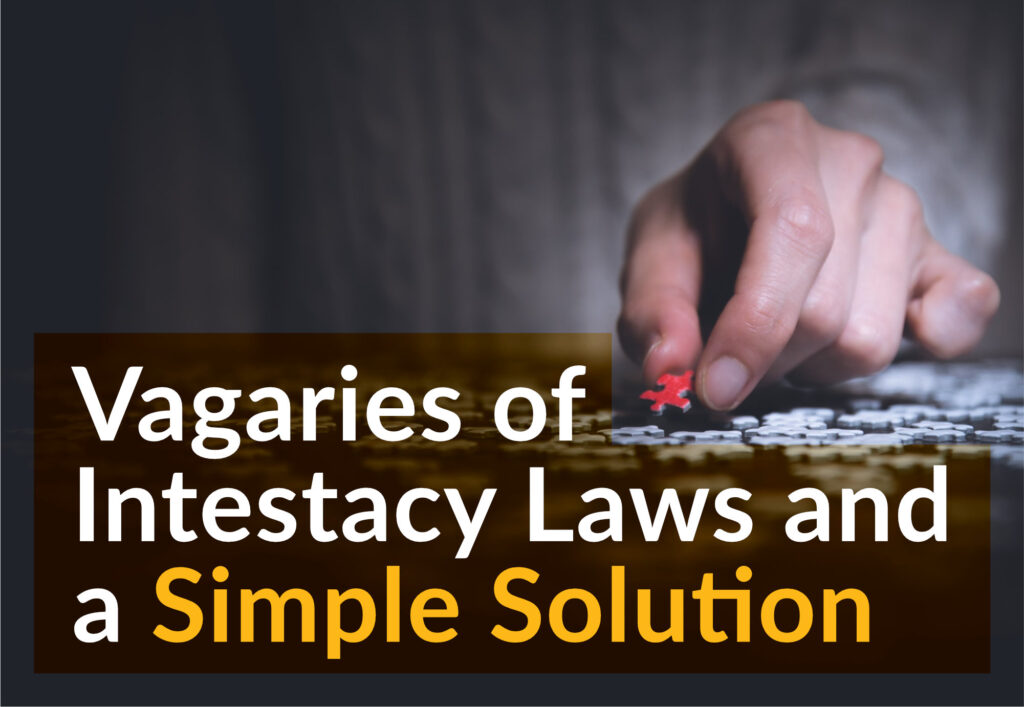In our previous article, we noted that when a person dying intestate, control over his assets is handed over to the courts. There is a high likelihood that the courts will not distribute the deceased’s assets the way he intended if he had written a Will.
Intestacy laws put the loved ones of a deceased person in a one-size-fits-all path with little or no deviation. While the laws are clearly set out, they invariably do not align with the dead person’s likely intentions had he written a Will. There are countless scenarios that arise in the wake of a person dying intestate. Here are five common ones:
- No control over your assets: Intestacy laws are strict. They lean towards equal division of assets to those within the same generation. For example, there is equal division among parents if assets are passed to them, or equal division among children if assets pass to them. Such a distribution may not be what you intended and the potential for disputes is high.
- Enforced sale of family home: According to intestacy laws, your spouse and children will each get shares to your family home. What if your spouse wants to keep the house but your children want the money from a sale. Because you have not expressed your intention in a Will, your spouse may have to sell the house if she has to raise the money to pay off the children.
- No financial protection for your children: Your children may not receive the amount you wanted them to receive and there is no opportunity to provide a trust for them. This means that when they reach 18 years of age, they receive all of the funds whether or not you have chosen that option at that point in their lives.
- No say on guardian: What if you are a single or divorced parent with children who are minors. Writing a Will is essential in such cases as you need to ensure that your children are taken care off by someone of your choosing in case you die. Any parent knows how important it is to make sure that your children are in the hands of someone you want.
- Nothing for your partner: Say you are in a long-standing relationship but not married to your partner, and you want your partner to receive your house when you die. If you die without a Will that reflects this desire, the house won’t go to your partner. It would be a devastating blow. Your asset could instead pass to an outcast family member, or other undesirable persons.
- Undesired administrator: Without a will, you do not have an executor. Someone must be appointed to act as an administrator of your estate. This person may not be the person that you would have appointed. The process of appointing an administrator also creates delays and unnecessary expenses for your estate, including additional legal costs. The person who is appointed as the administrator may also be disputed by loved ones.
Writing a Will is Not Enough
The easiest way to avoid these troubling scenarios and others is simply to ensure that you have written a Will that is kept up to date in terms of distribution of your assets. Not only will this save your family from the stress and divisiveness that intestacy breeds, but it will ensure that your estate is divided exactly how and to whom you want.
Remember that estate planning is always about the small and technical details. Plan for every thinkable scenario, and never assume anything. Estate planning is an area where you need to learn from other’s mistakes as you will not have the opportunity to learn from our own mistakes when you are dead.










